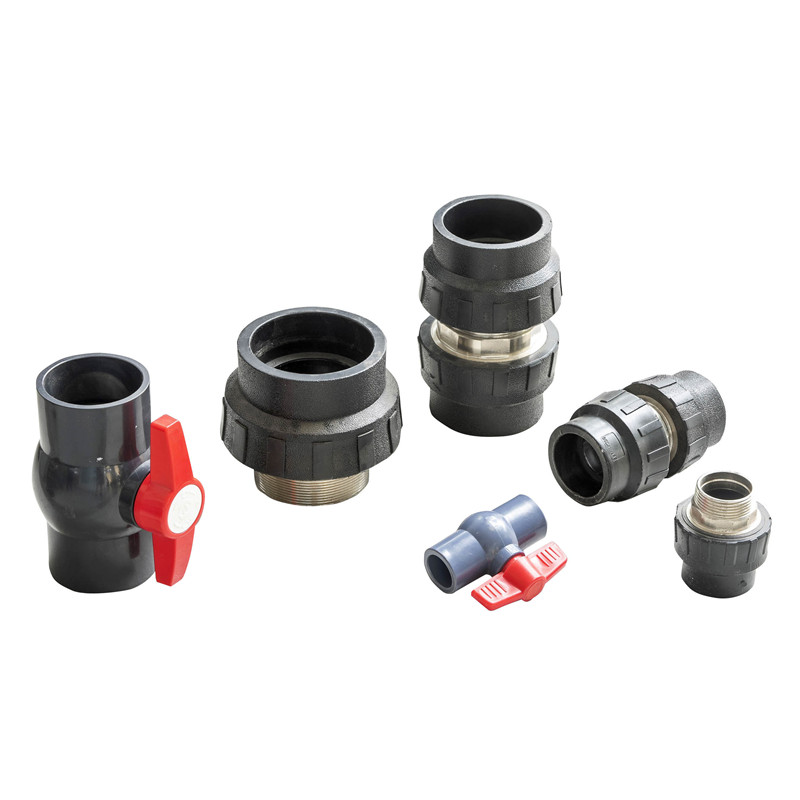Okt . 06, 2024 10:06 Back to list
hdpe irrigation pipe fittings
HDPE Irrigation Pipe Fittings The Backbone of Efficient Irrigation Systems
High-Density Polyethylene (HDPE) irrigation pipe fittings are essential components in modern agricultural and landscape irrigation systems. Known for their durability, flexibility, and resistance to various environmental factors, HDPE fittings play a crucial role in ensuring efficient water distribution, which is vital for optimal crop growth and sustainability.
Advantages of HDPE Pipe Fittings
One of the main advantages of HDPE irrigation pipe fittings is their resistance to corrosion and chemical damage. Unlike traditional materials such as metal or concrete, HDPE does not rust or deteriorate over time, even when exposed to harsh chemicals commonly used in agricultural practices. This durability results in lower maintenance costs and extended lifespan of the irrigation system.
Additionally, HDPE fittings are lightweight and easy to handle, which simplifies the installation process. This feature is particularly valuable in large agricultural fields where labor and time are essential factors. The ease of assembly also allows for quick repairs and modifications, making HDPE fittings a practical choice for farmers and landscapers alike.
Design and Versatility
HDPE irrigation pipe fittings come in various shapes and sizes, including elbows, tees, couplings, and reducers. This versatility allows irrigation professionals to design systems that are tailored to specific landscape features or agricultural requirements. The smooth inner surface of HDPE fittings enhances the flow of water, reducing the chances of buildup or blockages in the irrigation lines.
hdpe irrigation pipe fittings

Moreover, HDPE fittings can be fused together using specialized welding techniques, creating a seamless and leak-free connection. This method not only ensures a stronger bond but also minimizes the risk of water loss, which is critical in regions facing water scarcity. By promoting efficient water distribution, HDPE fittings contribute to better crop yields and resource management.
Environmental Considerations
Sustainability is a key concern in modern agriculture, and HDPE irrigation pipe fittings align well with eco-friendly practices. HDPE is made from recyclable materials, reducing the environmental impact associated with production and disposal. When the fittings reach the end of their life cycle, they can be recycled to create new products, promoting circular economy principles.
Furthermore, the efficiency of HDPE irrigation systems can lead to significant water savings. By minimizing evaporation and runoff, these systems optimize water use, which is particularly important in areas susceptible to drought. As farmers are increasingly focused on sustainable practices, HDPE pipe fittings offer a solution that supports both agricultural productivity and environmental responsibility.
Conclusion
The significance of HDPE irrigation pipe fittings in modern agriculture cannot be overstated. Their durability, ease of use, versatility, and environmental benefits make them an integral part of efficient irrigation systems. As the demand for sustainable agricultural practices continues to rise, the adoption of HDPE fittings is likely to grow. By choosing HDPE for irrigation systems, farmers and landscapes not only enhance their operational efficiency but also contribute to the conservation of vital water resources. In a world where every drop counts, HDPE irrigation pipe fittings stand as a reliable solution for nurturing the future of agriculture.
-
Premium PVC Soft Sheets: Clear, Flexible & Durable
NewsAug.12,2025
-
Premium PVC Round Rods: Durable, Chemical Resistant, Easy to Machine
NewsAug.11,2025
-
PP U-channel: Chemical-Resistant, Lightweight & Durable
NewsAug.10,2025
-
Transparent PVC Pipe: Clear Flexible Tubing for Fluids
NewsAug.09,2025
-
Durable PP Rigid Sheet: Versatile & High-Quality Plastic Panels
NewsAug.08,2025
-
Premium Glossy PP Rigid Sheet – Durable & Versatile
NewsAug.07,2025

